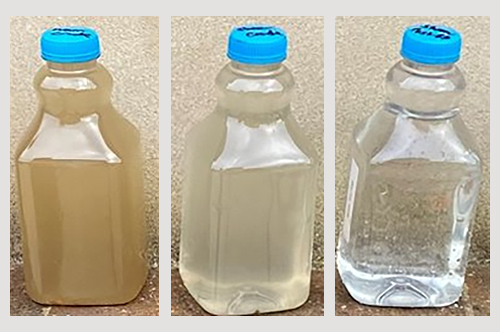Groundwater causing dry weather discharges
A BBC report has named Wessex Water, Thames Water and Southern Water as companies that release ‘sewage’ into rivers on occasions when it hasn’t rained.
The focus is on these three companies because other companies refused to provide information, while much of the information we supplied has not been included in the BBC reporting.
The discharges referenced are caused by high groundwater which, unlike rainfall that stops relatively quickly, continues for days or even months. None of these overflows cause rivers to fail to meet ecological standards.
Here are the facts:
- Out of the eight Wessex Water sites identified by the BBC, there were no discharges at five of the sites.
- There are three sites that do discharge when groundwater levels are high. This groundwater enters the sewerage network largely through private pipes.
- High groundwater levels infiltrate the sewerage network resulting in excessive flows in the same way as heavy rain, but unlike rainfall that stops relatively quickly the groundwater can continue for days or even months.
- The issue of groundwater driven overflows has been the subject of discussion between companies, the Environment Agency and Defra for some time.
- We have been relining our pipes but much of the infiltration is from private pipes that then connect to the public network. Companies have no powers to require these pipes to be fixed.
- The resulting discharge is groundwater with a small amount of sewage. None of these overflows are a cause of failure to meet ecological standards.
- We are progressively using nature-based solutions to treat this groundwater, as is the case at Shrewton, which ensures what is discharged is cleaner than the river itself. At Chew Stoke, the flows go through storm treatment, including fine screening, before being released into the river. A nature-based solution at Chew Stoke is being designed to deal with the issue of groundwater to provide further treatment.
- By 2025 we will have completed, or will be in the process of constructing, nature based solutions to treat groundwater at 28 locations across our region.
- Meanwhile, we are currently investing £3m a month to reduce overflows, and subject to regulatory approval we have plans to significantly increase this level of investment between 2025 and 2030.

Ruth Barden, Director of Environmental Solutions, said: “This a known issue caused by high groundwater which, unlike rainfall that stops relatively quickly, continues for days or even months. None of these overflows cause rivers to fail to meet ecological standards."
“We’re using nature-based solutions to treat groundwater affected sites, and by 2025 we will have completed or progressed 28 schemes in our region."
“Meanwhile we’re investing £3m a month on reducing overflows, which we agree aren’t fit for the 21st century, and we’re planning to invest significantly more between 2025 and 2030 subject to regulatory approval.”

